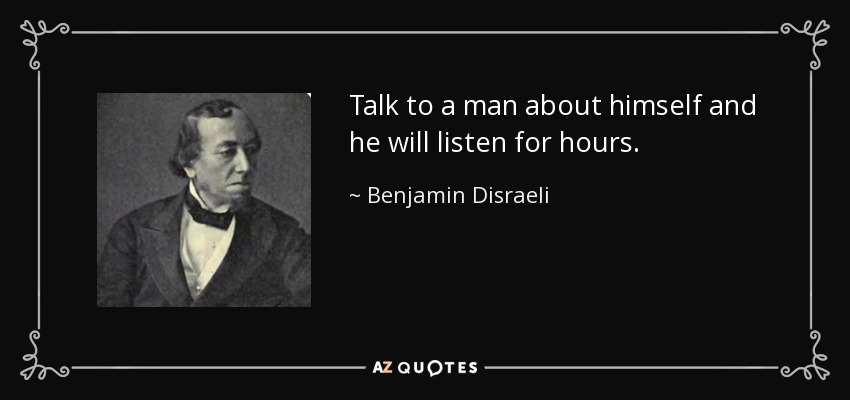TL;DR
Listen more, speak less.
The social value you provide to people is clarity.
Listen to people, not for their advice, but for their sake.
Whom am I speaking to? Who is this going to help?
The guy who tells himself he has no “social skills” but in reality is underplaying the power of listening through genuine curiosity.
My Mind Dump.
Why Listen in the first place

I personally experienced this when I was working with one of my mentors. It genuinely seemed as though the more I let my mentor talk, the more he liked me. On the other hand, the moment I spoke, it seemed to have annoyed him because he lost his track of thought.
I also remember a time, way back when I was in school, when I made a close friend simply because he sat next to me and would laugh at my jokes while listening to the ideas I had. He made me feel important the same way I made my mentor feel great.
More than anything else, there’s another important realization I made: Most people don’t journal.
Besides this blog, I also have a OneNote setup so that I could easily and effortlessly type whatever was on my mind.
I started this so that I could at least gather my thoughts without feeling like I was going insane, but over time I realized that simply organizing my thoughts on paper clarified what I needed to do. I was able to formalize my ideas, and then take action knowing that I have confidence in what I’m doing because I am clear on what my intent is and where I’m going.
I see this all the time when I let people talk. It’s as if in the middle of them talking, they come to some sort of realization.
Side note
This is also why when friends ask for your advice on something (especially on relationship matters), they tend to do the opposite, or do nothing with your advice.
I realize that they’re not trying to annoy you, rather they are verbally journaling their thoughts and concerns–they are converting something in their heads into something more concrete like paper or speech. Other times, they may simply wish to understand the opposite perspective–they listening to the “devil’s advocate”, and understanding if that action is something they can feel confident in taking.
In all cases, the same idea holds true: we want to convert what’s in our heads to something concrete and objective.
Why listening is attractive

In social dynamics, the expression of genuine interest and curiosity is extremely attractive. As Arlin Moore (founder of the Tribe Accelerator and MindsetDesign.com) once said having someone show you genuine interest during a conversation is like being on a plane or flight with a baby sitting next to you.
The baby is not judging you. The baby is not being passive aggressive with you. The baby has no hidden motive nor agenda. He’s just sitting there, doing baby things. What does this look like? He is:
- Smiley, with a natural glow to see your face
- Happy and enthusiastic to be in your presence
- Watches you with eyes of wonder as you speak
- Makes you laugh, without even trying
- Playful, and does not take himself so seriously–he’s just there minding his own business!
From this perspective, it almost becomes so obvious why listening is the highest ROI in any social activity.
How to Generate Genuine Curiosity

When you listen, listen with curiosity.
Now since this blog focuses on practical and simply daily life to navigate the world, here are a few of the techniques I’ve used to genuinely increase the effectiveness of listening.
Note that these techniques sound more like mind games, but really we are simply choosing to change our perspective during a social interaction.
- Pretend that the person you’re speaking with is dead, and you’re actually speaking to their spirit–and this spirit has something to tell you on your own journey
- This one sounds weird, but let me explain
- I’m used to hearing my dad speak since I see him so frequently, so over time, by habit, it’s easy to take for granted the opportunity I have to speak to him while he’s still here (news flash: death is guaranteed, everyone WILL die).
- When I find myself listening to him, I pretend that he has already passed away, and I am listening to his spirit–this makes me cherish the interaction far more, than if I told myself “it’s another episode of my dad sharing his stories, as usual”
- View yourself as a student who is curious about the inner worlds od people
- I got this idea from Robert Greene, and it’s fantastic
- According to Robert Greene, most people are in their own heads and rarely wonder what other people are like–they lack that child-like curiosity
- As a student, see yourself mentally documenting and observing how this person things. Maybe understanding their thoughts will help you, as a student, better navigate the world around you.
- Pretend that you’re speaking to an old friend
- Leil Lowndes wrote a book called, “How to Talk to Anyone”. The book was written as a practical guide (much like this blog) to Dale Carnegie’s “How to Win Friends and Influence People”. Lowndes’ book is filled with simple conversation techniques that explicably tell you how to act in accordance with Carnegies’ book. It’s worth a read.
- Pretending as if you were speaking to a friend is one of many techniques that Lowndes writes about. Of course, she has written a whole book that goes into deeper detail, so I deffer the expertise to her.
- My own, pragmatic, simple 3-step process
- Look, I get it: this is a lot, and maybe you don’t have the time to play these mental games or read lots of books. In such a case, I have 3 simple techniques that even a monkey can follow:
- Shut up: I’m not trying to be harsh, I’m trying to grab your attention at how urgent it is to stop talking…at least for now
- Listen: Focus your FULL attention on the person talking. This means no phones, no side conversations, no daydreaming. Just listen
- Understand: The last part is to put yourself in their shoes. Go along with their story as if you’re part of it. Ask questions to clarify what’s going on, and how it happened. Express geunine emotion during surprising or shocking moments.
- And that’s it! 3 simple steps even a monkey can follow
Okay but eventually I’ll have to contribute something to the conversation–what do I say???
Ask questions! Nothing more, nothing less.
Remember, most people don’t journal, and if you actually want to be practically useful by providing value to a conversation, help the person who is speaking clarify their own thoughts though relevant questions.
Side Note
As I typed that last paragraph, I just now came across another important realization. Not only do most people miss journaling, but most people also don’t have clarity of thought–they’re not clear thinkers.

Especially when I was young, I would be annoyed with people, thinking, “isn’t this so obvious, how can you not see it?”. Now it has occurred to me: most people are too busy to have the time to think clearly.
So, in conversation, this is exactly how you provide social value: ask questions to help them clarify their own thoughts.
People seek clarity.
Back to the main question: What do I say?
If you are truly listening, the “right” questions will come naturally. Don’t lie to yourself by asking questions for the sake of “appearing” as though you care–people can tell when you do that (been there, done that–people are actually smart in their own ways!).
But if you really focus your attention on the person, trust yourself that the right question will come at the right time. Of course it will take some practice, but that’s okay, because you’ll be listening most of the time.
My own experience being heard

There was once a time, back when I was first starting at my job, where I was stressed and burned out. In all my panic, there was one person who was able to hear me. I vented to him my stresses, and he calmly listened–without judging and without telling me what I did wrong or what I should do next. He simply gave me the space to expel-out my frustrations.
Today, he and I are close friends, and I could not imagine continuing to work at my current job without one good friend like him.
Great, I now know how I contribute to conversations, should I start telling people that I provide clarity?
Perhaps not immediately.
I think telling people that information upfront takes away the person’s ability to mental dump because now they will feel too self-conscious when speaking.
Listening really works when the person is free to mentally dump whatever is in their head.
The moment you tell them, “I provide value by giving you clarity”, is not correct because only the person himself/herself can gain clarity–you cannot self-actualize on someone else’s behalf.
On the other hand, if you tell them “I provide value by helping you gain clarity”, although correct, now makes the person too stuck in their heads. The person may now think:
- “What should I say?”
- “Why am I like this?”
- “Who am I?”
- “What’s the deeper meaning behind this?”
That’s too introspective to be helpful at the moment.
When people vent, or when people feel happy and want to talk, they are being driven by emotion rather than rational thought–let their emotions manifest into clear ideas by giving them the space to talk, without assigning a label or objective behind your listening.

Remember the baby example? Babies have no agenda or purpose; they’re simply happy to be in your presence!
Likewise, when you listen to someone, resist the urge to explain what you’re doing. Instead, enjoy people’s presence and this moment right now. Pure baby bliss.
So what’s the point of me knowing my value?
For your own ability to be secure with yourself.
It’s knowing that you don’t need to say something just to prove that you are providing value to someone else, rather it’s being at ease, knowing that you are needed in this conversation.
Of course, if you encounter a persistently curious individual who wishes to know more, and continues to probe at why you enjoy listening, then it would be appropriate to elaborate.
I think of the example from my transcendental meditation (TM) teacher. Despite having received such positive benefits from TM, my teacher advised me to reframe from telling people, but instead let people’s natural curiosity and mind come to their own conclusion.
Many times, I think we try to do what’s best in others’ interest, but end up back firing because it was not in accordance with what the individual wanted.
Let people notice your confidence and security. Most may never question it, and that’s okay, because you’re the one who benefits the most from the information, while your actions help other people.
How does this opinion explain how the world really works in a way that accurate, wholistic, and realistic?
The reality of the world is this: We want to convert what’s in our heads to something concrete and objective, and since most people do not journal, they spend more time talking than listening.
If you want to be more attractive to people, and have better social relationships, start by listening.
Thanks for the advice, now how can I practically put this to use in a simple way for daily execution?
Listen more, speak less. Remember that you have two ears and one mouth for a reason.
